Shell Eco-Marathon Student Event Roundup: Keeping the Passion for Automotive Engineering Alive
Posted by WALEED SHAH
An event was organized on October 14 in Islamabad for students participating in the Shell Eco-Marathon (SEM) representing Pakistan. It aimed to prepare the Pakistani engineering students for the international SEM competitions next year.
It featured four teams from across Pakistan that were evaluated by a panel of judges, including the CEO of ProPakistani, Aamir Attaa, the Co-founder of Pakwheels, Suneel Sarfaraz Manj, and the Country Marketing Head for Shell Pakistan Lubricants Division, Nadia Haseeb.
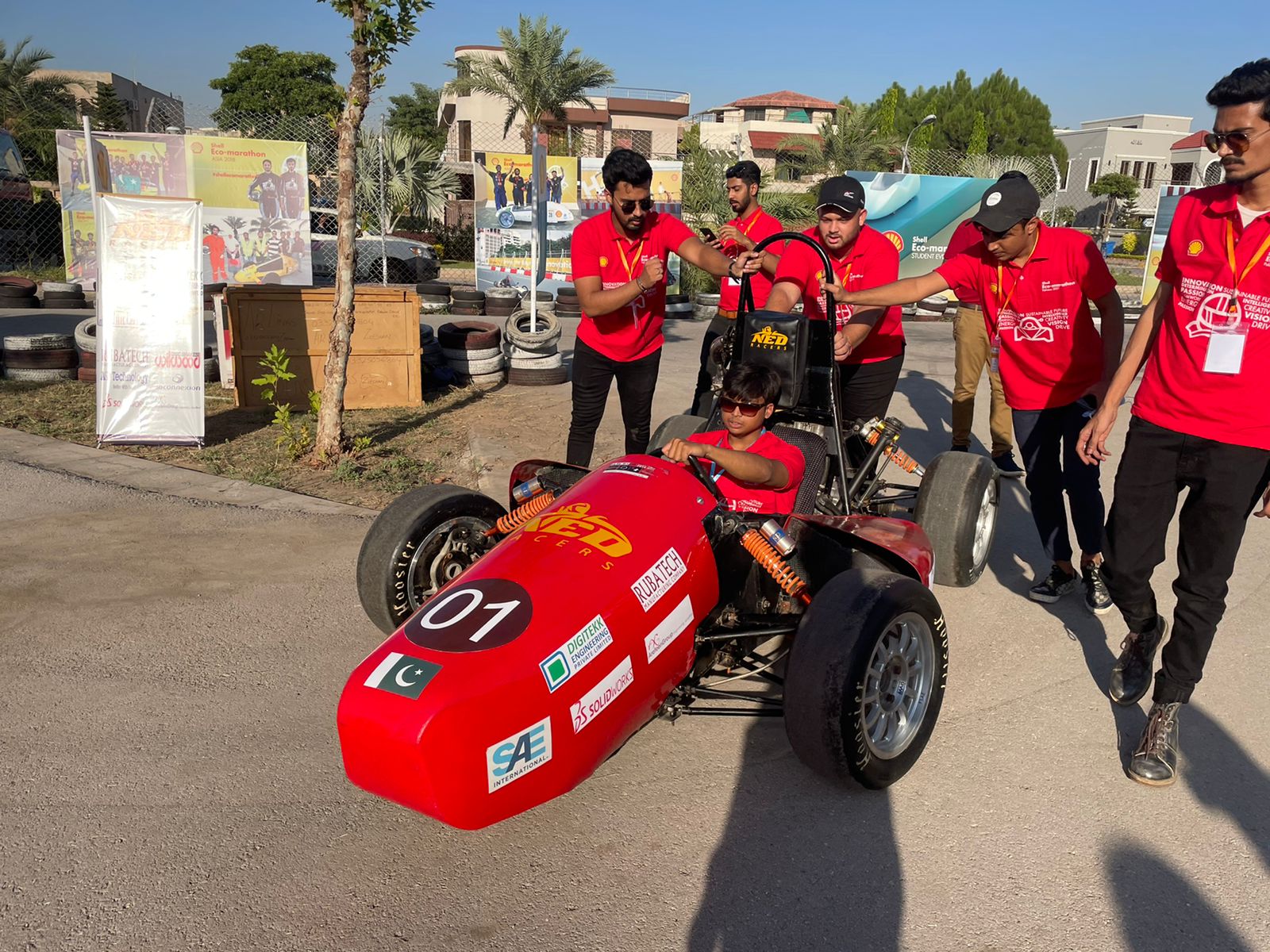
The teams (comprising 10 students each) competed in two vehicle categories, namely Gasoline Urban and Battery-Electric Prototype. The details of the competitions are as follows:
| Teams | Institutes | Location | Category |
| Urban | Ghulam Ishaq Khan Institute | Topi | Gasoline Urban Concept |
| Envision | Pakistan Navy Engineering College-NUST | Karachi | Battery-Electric Prototype |
| Hammerhead | Ghulam Ishaq Khan Institute | Topi | Battery-Electric Prototype |
| NUSTAG | College of Electrical and Mechanical Engineering-NUST | Rawalpindi | Gasoline Urban Concept |
A rare learning opportunity for young engineers
A participant told ProPakistani that the Shell Eco-Marathon (SEM) was a wonderful avenue that allowed contestants to learn and develop technical and managerial skills.
“Each member of the team was designated a particular part of the project that they must complete, which is challenging, yet at the same time, is conducive and enlightening,” he added.
“The event also helps us broaden our horizons in terms of market exposure. We reached out to various organizations to sponsor our efforts, which helps us garner a strong network in the market as well,” he explained.
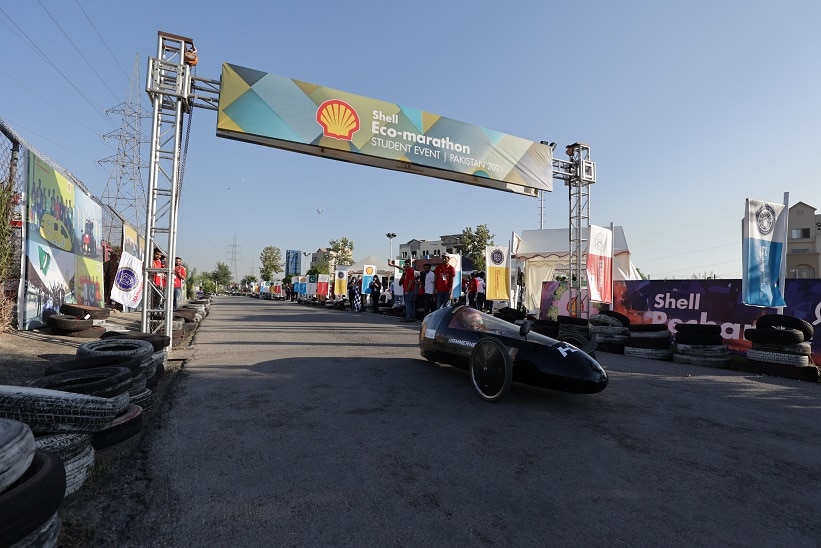
A member of a different team added that these opportunities had allowed him and his team members to improve their arsenal of knowledge and skill.
“Such avenues can play a vital role in allowing the younger generation to make significant contributions and breakthroughs that can, in the long run, benefit our country and our society,” another participant opined.
Another participant said, “Although a lot of time and effort goes into the materialization of these concepts, we enjoy every moment of it. Events like these help keep our passion for automotive engineering alive.”
What kind of vehicles did the event feature?
The goal of the event was to encourage students to develop vehicles that are efficient and could perform reliably around the track.
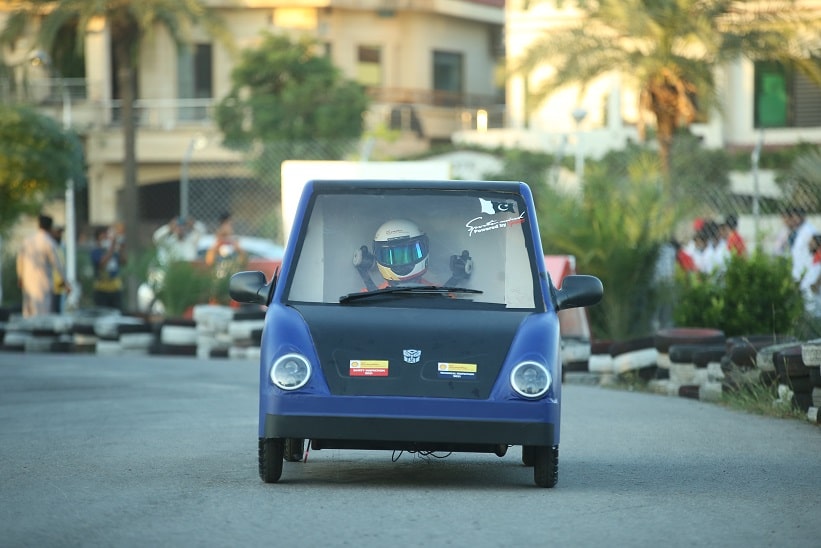
Here are some of their mechanical and architectural details:
| Institutes | Category | Architecture | Powertrain | Materials Used | Curb Weight |
| Urban | Gasoline Urban Concept | Body-on-frame chassis | 72cc petrol-powered single-cylinder motor mated to a 4-speed transmission | Aluminum outer shell, and mild steel chassis | 200 kg approx. |
| Envision | Battery-Electric Prototype | Semi-monocoque chassis | Electric motor driving the rear wheels | Carbon fiber upper shell, lower shell made from fiberglass and carbon fiber composite, and mild steel chassis | 57 kg |
| Hammerhead | Battery-Electric Prototype | Body-on-frame chassis | Electric motor driving the rear wheels | Mild steel frame, carbon fiber outer shell | 47 kg |
| NUSTAG | Gasoline Urban Concept | Body-on-frame chassis | 125cc petrol-powered single-cylinder motor mated to a 4-speed transmission | Carbon fiber outer shell, mild steel chassis | 95 kg approx. |
| NED Racers | Formula Racing Concept | Tubular frame chassis | 600cc petrol-powered 4-cylinder motor, mated to a 5-speed manual transmission | Mild steel tubular frame, metal sheet nose, fiberglass side panels | 340 kg |
Note: NED Racers did not participate in the event and its vehicle was presented only as an exhibit.
What does the future hold for these cars?
The participants told ProPakistani that their project cars were being constantly developed and evolved, and that they were always conceiving ideas and making changes in order to improve the cars in each performance metric.
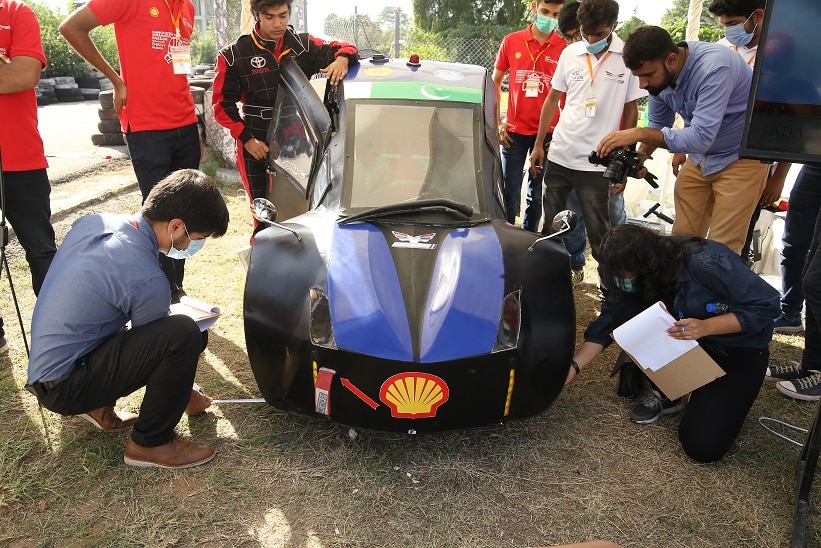
Hammerhead’s representative revealed that the team was working on the development of a new Electric Vehicle that would have lighter materials, an outer shell made completely of carbon fiber, a more efficient motor, and a slightly renewed body design for reduced drag.
He added that the prototype would be based on a monocoque chassis to reduce the weight of the vehicle.
Likewise, NED Racers’ representative said that they would use an all-aluminum tubular frame chassis and only carbon fiber panels all around their vehicle to reduce its weight. He added that other design-related and mechanical changes would also be made to optimize its performance.
“A marathon, not a sprint”
The vehicle entries had been meticulously designed and developed by the participants. On average, the development of each vehicle took almost a year, which allowed each team to achieve a perfect blend of efficient and reliable performances.
Judges gauged the performance of each vehicle against different metrics including innovation, technical details, communication strategies, and more.
In the Gasoline Urban category, Team NUSTAG (from NUST) took home the winning prize. And the award in the Battery-Electric Prototype category went to Team Hammerhead (from GIKI).
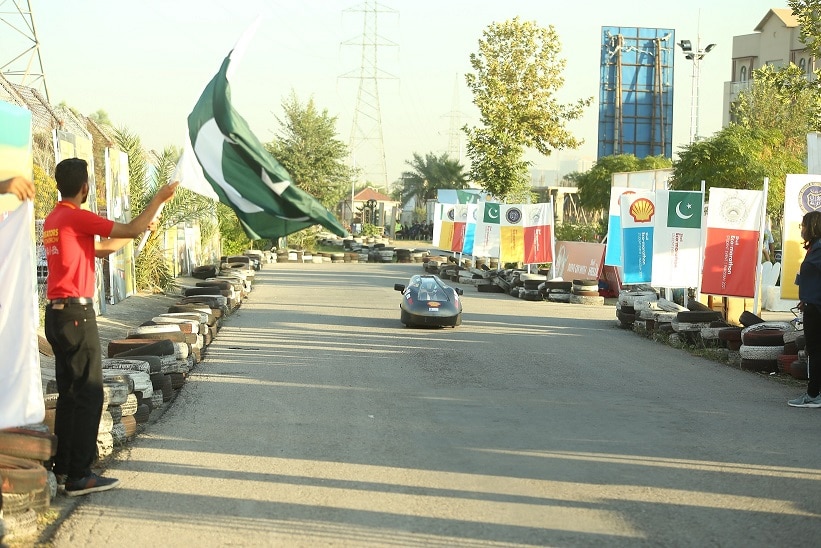
“With the passage of time, these projects have become a lot more intricate and practical, which is very impressive,” said Suneel Sarfraz Munj, Co-founder and Chairman of Pakwheels.
“The efforts of these students are worthy of a lot of praise, and I look forward to witnessing bigger and better things for and from these teams,” he added.
“The hard work and dedication of the participants are certainly commendable and these efforts should continue on a more frequent basis. Bear in mind that this whole practice is a marathon, not a sprint,” said Aamir Attaa, CEO ProPakistani.
“The evolution of these concepts and prototypes will likely take years before they become ‘road-ready’. And if these activities continue, it will allow for the development of vehicles that can fulfill the day-to-day needs of the masses,” he added.
“The Shell Eco-Marathon events allow the students to showcase their talents and skills, and always elevate my confidence in the immense potential of Pakistani youngsters,” shared Nadia Haseeb, Country Marketing Head for Shell Pakistan Lubricants Division.
“Based on the hard work and dedication of the participants, it is evident that the events like SEM are major contributors to the creation of future craftsmen for the automotive industry of Pakistan,” she added.
The post Shell Eco-Marathon Student Event Roundup: Keeping the Passion for Automotive Engineering Alive appeared first on .



